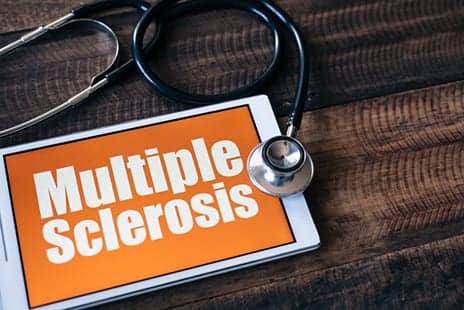Neighborhood income and education level may be associated with risk of disability progression in patients with multiple sclerosis, suggests new research from the University of British Columbia and published in Neurology.
UBC researchers, along with colleagues in Wales, compared population health data across several measures of socioeconomic status, and found that lower neighborhood-level income and educational attainment was associated with an increased likelihood of reaching key physical disability milestones, such as difficulties with walking.
The findings paint a clearer picture of the way that wealth and education might affect patients with MS, according to the researchers, in a media release from the University of British Columbia.
“This study is the first of its kind,” says the study’s senior author Helen Tremlett, professor in the division of neurology at UBC and the Canada Research Chair in neuroepidemiology and multiple sclerosis. “Previous studies have looked at the relationship between socioeconomic status and risk of developing MS. Here, we were able to show a relationship between socioeconomic status and subsequent risk of disability progression.”
As the Welsh and Canadian systems for tracking population health data are similar, the team was able to access comparable information for the two groups of patients. For the Canadian patients, the team determined socioeconomic status based on census data, which links postal codes with neighborhood-level income. Clinical information from a provincial MS database was linked with population-based provincial health administrative data. The Welsh patients were assessed by linking similar datasets, including National Health Service information, postal code-related income data and educational attainment.
A key component of this study was that the data on socioeconomic status were captured before MS onset, therefore predating any possible effect of the disease itself on socioeconomic status, the release explains.
The researchers did not look at specific factors that might explain the relationship between lower socioeconomic status and higher risk of disability progression, but they suggest that modifiable lifestyle factors, such as diet and exercise, could be involved, they note.
“If that is the case, the risk may be amenable to change,” Tremlett says. “One of the next steps is to understand why this relationship exists.”
“I’m glad to see that there is now research that backs up what I and many in the MS community have been experiencing for years,” shares North Vancouver resident Marilyn Lenzen, who was diagnosed with MS nearly two decades ago, in the release.
“Someone who has the financial means to buy healthier food or afford to participate in yoga, Pilates, or specialized exercise to rebuild their strength after a relapse doesn’t experience the same progression of disabling symptoms as others who can’t afford to access the same healthy lifestyle choices.”
The researchers hope that future MS studies will consider the socioeconomic status of participants, especially if multiple study sites are involved and findings are compared across regions, as their socioeconomic status could be an important factor in disability progression.
[Source(s0: University of British Columbia, Science Daily]





